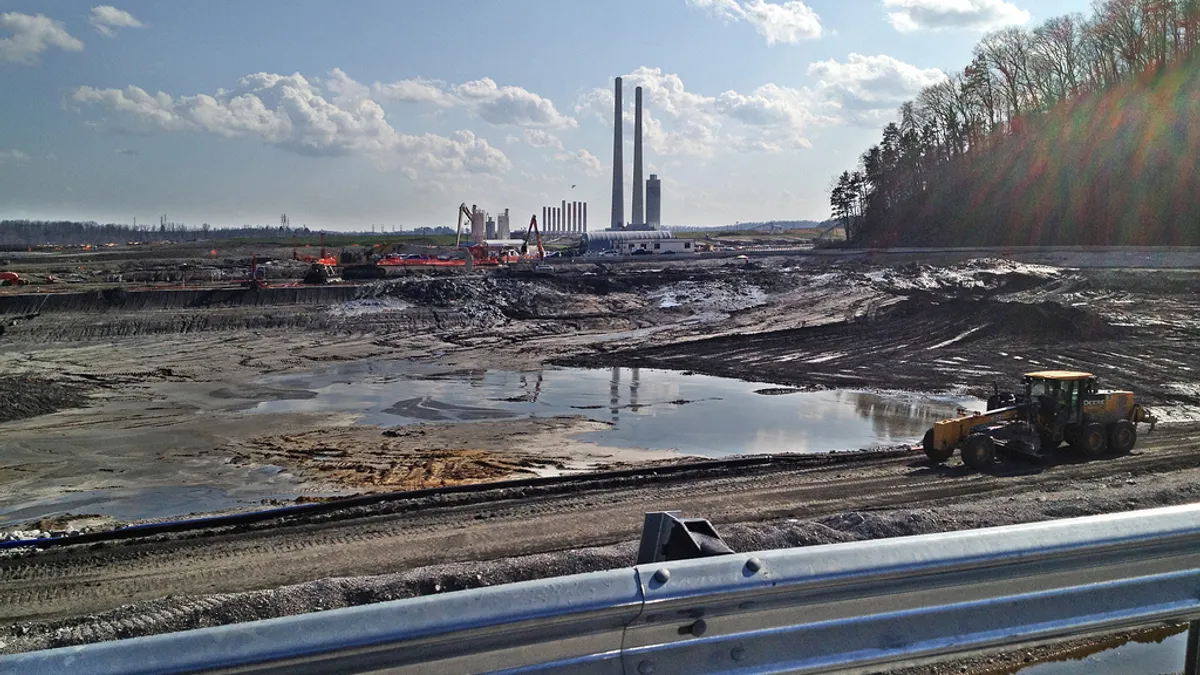Dive Brief:
- The Water Infrastructure Improvements for the Nation Act (WIIN), signed this month by President Obama, includes provisions that makes changes to how states will manage coal ash and allows them additional authority while also allowing the federal government to play a role, the Southeast Energy News reports.
- Rep. David McKinley (R-WV) has been working to pass a form of the bill for six years, and said it would protect more than a quarter million jobs while ensuring safe handling of coal ash.
- The measure creates a state permitting program for coal ash disposal that would be overseen by the federal government; the U.S. Environmental Protection Agency will approve programs that align with federal coal waste standards.
Dive Insight:
While the federal government has a role in overseeing state coal ash plans under the new law, participation remains voluntary—but if states do not participate, then federal rules for coal waste disposal remain in place. The measure allows states more control over their plans for dealing with coal ash, and according to Southeast Energy News, could be a particular boon to North Carolina, a state which is struggling with coal waste.
"This legislation will help protect 316,000 jobs while empowering individual states to ensure the proper management and disposal of coal ash,” Rep. McKinley said in a statement. "We’ve reached a solution that creates certainty for everyone. This is legislation that both parties should support."
North Carolina's coal ash woes started two years ago after a coal ash spill in Dan River from one of Duke Energy's waste ponds. Since then, the state has been locked in an ongoing battle over fines and cleanup. To deal with the issue, North Carolina crafted the Coal Ash Management Act, a state measure that aligned with federal regulations.
This summer, the North Carolina Gov. Pat McCrory (R) signed a bill requiring Duke Energy to clean up coal ash pits at half of its sites without having to excavate the waste as long as the utility supplies clean drinking water to residents near the ponds by 2018. That law was a partial resolution to a long series of clashes between the state's lawmakers and the governor's administration on how Duke Energy should deal with its coal ash ponds.















